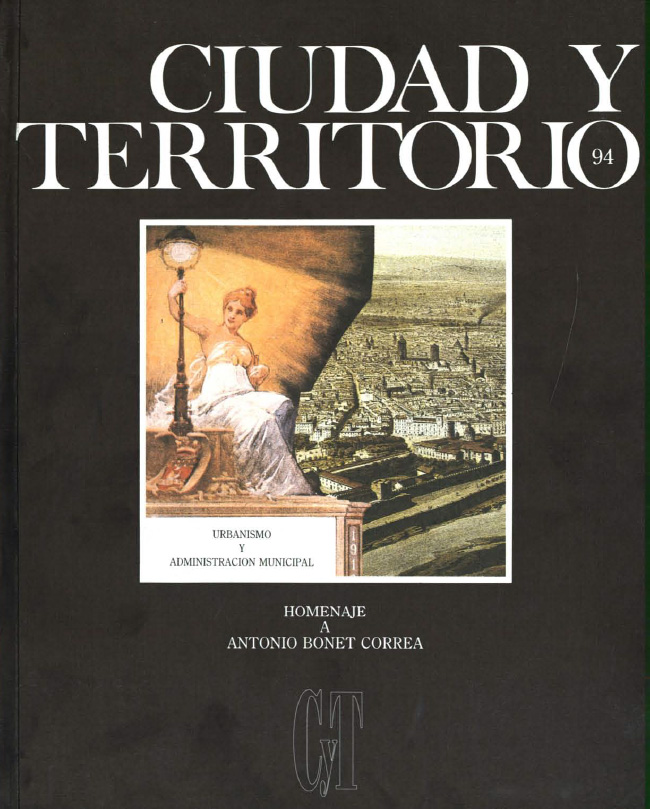TOWN PLANNING AND LOCAL GOVERNMENT SAY IN IT DURING THE 19TH CENTURY
Abstract
The paper speaks these competencies that a begrudging central administration allowed local government to exercise, albeit on lead strings, during the last century. Of these, the most important as far as city development went, were the laws as to re-laying out towns and that dealing with the original municipal area's spreading out into previously rural land. The paper is rounded out with a description of other, minor acts that also had a bearing on urban growth such as the compulsory purchase law and that dealing with highways. The enactments here examined high point on the one hand the changes that the spanish economy and society then underwent, on the other both the ideology and methods of a middle class bent upon both controlling and enriching themselves upon a process of city change.
Downloads
Downloads
Published
How to Cite
Issue
Section
License
Copyright (c) 1992 Josep Oliveras Samitier

This work is licensed under a Creative Commons Attribution-NonCommercial-NoDerivatives 4.0 International License.
Considering the provisions of the current legislation on Intellectual Property, and in accordance with them, all authors publishing in CyTET give -in a non-exclusive way and without time limit- to the Ministry of Transport, Mobility and Urban Agenda the rights to disseminate, reproduce, communicate and distribute in any current or future format, on paper or electronic, the original or derived version of their work under a Creative Commons Attribution-NonCommercial-NoDerivative 4.0 license International (CC BY-NC-ND 4.0), as well as to include or assign to third parties the inclusion of its content in national and international indexes, repositories and databases, with reference and recognition in any case of its authorship.
In addition, when sending the work, the author(s) declares that it is an original work in which the sources that have been used are recognized, committing to respect the scientific evidence, to no longer modify the original data and to verify or refute its hypothesis. Author(s) also declare that the essential content of the work has not been previously published nor will it be published in any other publication while it is under evaluation by CyTET; and that it has not been simultaneously sent to another journal.
Authors must sign a Transfer of Rights Form, which will be sent to them from the CyTET Secretariat once the article is accepted for publication.
With the aim of promoting the dissemination of knowledge, CyTET joins the Open Journal Access (OA) movement and delivers all of its content to various national and international indexes, repositories and databases under this protocol; therefore, the submission of a work to be published in the journal presupposes the explicit acceptance by the author of this distribution method.
Authors are encouraged to reproduce and host their work published in CyTET in institutional repositories, web pages, etc. with the intention of contributing to the improvement of the transfer of knowledge and the citation of said works.








 Enlace a CyTET en Linkedin
Enlace a CyTET en Linkedin